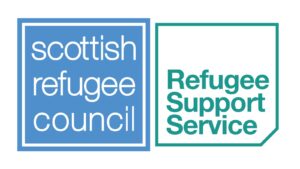Looking for a job in a new country can be a real challenge. Our Refugee Support Service provides training and support to help refugees find work in Scotland.
Despite having years of professional experience in her home country, Annie (not her real name) struggled to get a job after being granted refugee status. She joined our refugee employment training programme which led to a permanent job as a barista with Starbucks. This is her story.
I came to Scotland last year. Before that, I was a medical lab technician in Vietnam, and I hope to work in the same field here in Scotland, but English and interview skills make this difficult. I applied for a position in the NHS and got an interview but was not successful. Then I also applied for a job with a health charity but that was not successful either.
I thought because I couldn’t work for a year when I was an asylum seeker and had no experience of working in the UK, that was limiting my opportunities. So, I decided to requalify and look for part time work to pay the bills while studying biological sciences. There were several barista positions I applied for, but those employers did not contact me.
When I graduated from university back home, I got my job easily and worked for the same company for over six years. After failing several times with job applications in Scotland, I felt my self-esteem go so low. I didn’t know how to improve and do better in interviews.
Then a classmate who was doing ESOL (English classes for speakers of other languages) with me at Kelvin College told me about the programme at Scottish Refugee Council. I decided to have a try, and I have got my job now with Starbucks.
Scottish Refugee Council supported me with CV preparation and understanding workers’ rights in Scotland. They helped me get training with Starbucks and I got to talk to other people about their experiences working for the company before getting the job.
I also learned about the STAR interview technique, which helps us organise our answers and show our communication skills to the interviewer. Learning how to create a good CV and interview techniques are so important and I feel this will help me with other interviews.
My advice to other New Scots who have received refugee status and are trying to find work would be, learn English and do volunteering to get used to the working environment here. There are many organisations helping refugees gain new qualifications or teaching English at all levels.
I enjoy my job as a barista, working with different people, and talking to customers. It not only allows me to pay my bills while I study. It also helps with my health and well-being because I’m making social connections rather than staying at home and not working, which is stressful for me.
Thanks to this programme at Scottish Refugee Council, I have become more confident and feel better about looking for work in the future. When I complete my studies, I would like to become a biomedical scientist.
Our Refugee Support Service is here for anyone who needs our help, wherever in Scotland they are based. Find out more.
We provide information and training to help people like Annie understand the UK job market, identify transferable skills and perfect their interview technique. We also work in partnership with employers from a wide range of sectors to help refugees make the most of their skills and experience in the workplace.
Find out more about how we’re helping refugees find work in Scotland.
*Names have been changed

